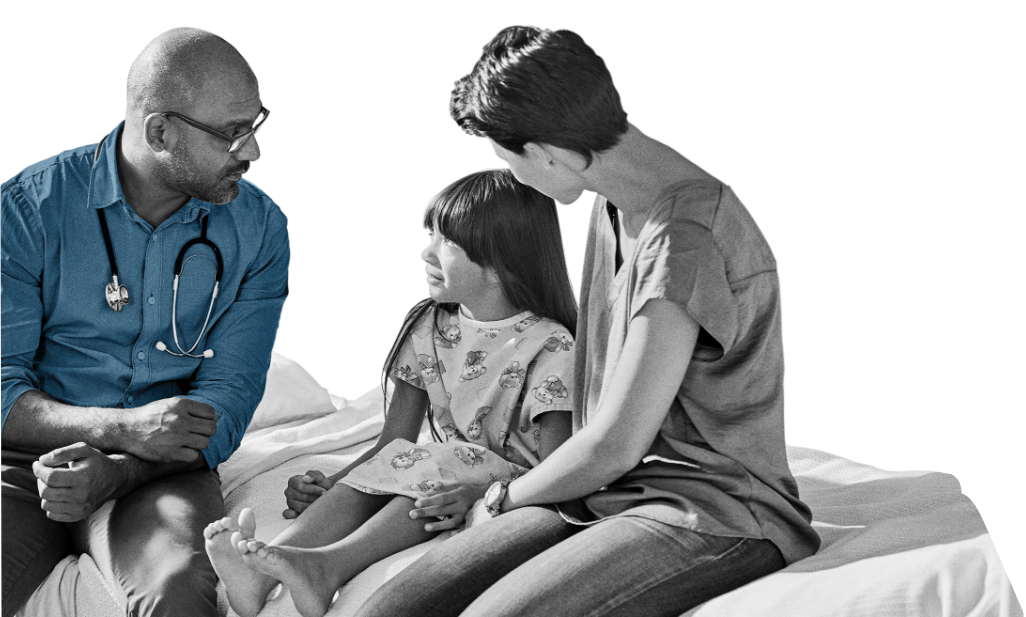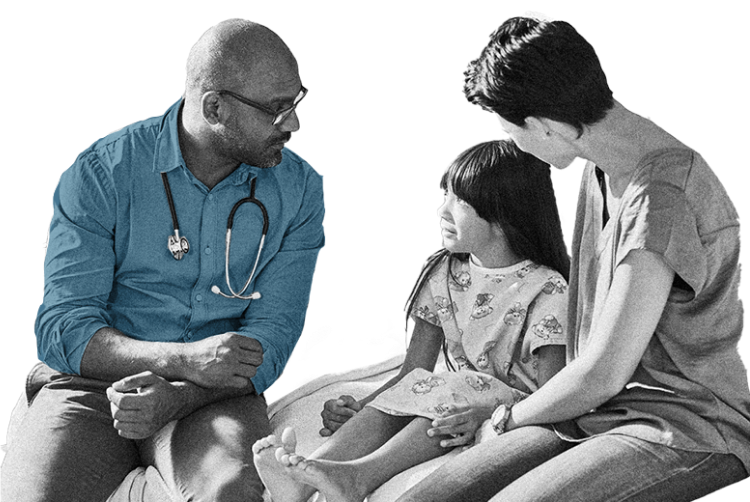This website uses cookies to help us give you the best experience when you visit and for certain analytics and marketing activities. By continuing to use this website, you consent to the use of these cookies. Please exit the website if you do not agree to such cookies being used. To find out more about how we use cookies, go to our Privacy Policy.
Guidelines
International clinical guidelines for Classic Galactosemia
Recommendations
Galactosemia diagnosis, treatment, and follow-up
GalNet screening guidelines
Recommendations addressing diagnosis, dietary treatment, biochemical monitoring, and follow-up of clinical complications were formulated. For all recommendations but one (bone density screening), full consensus was reached.1

GalNet assessments
The GalNet Guidelines recommend assessing cognitive disorders, speech/language delays, neurological complications, psychosocial deficits, and other measures of development from early childhood through the teenage years, and according to specific needs as adults.

Language & speech complications
Approximately two-thirds of patients with Classic Galactosemia have disorders of language and/or speech, including2:





GalNet language/speech guidelines
According to the GalNet Guidelines, all children with Classic Galactosemia should be tested for speech and language delays beginning at age 7-12 months and thereafter at 2, 3, and 5 years of age (in conjunction with the cognitive tests described above).
Assessments include hearing tests, evaluation of prelinguistic communication skills (age <2 y), and additional assessments for any child not meeting language developmental milestones.
Neurological complications
In addition to developmental and language impairment, neurological (motor) complications may emerge, including2:
GalNet neurological guidelines
GalNet recommends patients with Galactosemia be examined for ataxia, tremor, dysmetria, dystonia, and other neurological complications beginning from ages 2-3 years1:
- In pediatric patients, assessment continues at 6-month intervals
- In adults, screening may proceed annually
- When a specific deficit is identified, monitoring progression with the appropriate scale is advised
Mental & Behavioral Health
Potential long-term complications associated with Galactosemia
Galactosemia is a life-long condition that requires continuous management.


GalNet mental/behavioral guidelines

Mental & Reproductive Health
Guidelines for
screening in adults
In adults, standardized tests for depression and anxiety should be administered, and frank discussions of living conditions, work and/or educational status, relationship satisfaction, and sexual intimacy should be initiated at outpatient clinic visits, with referral for counseling as needed.1
Nearly all females with Classic Galactosemia develop primary ovarian insufficiency.5,6
GalNet Gonadal Screening Guidelines
Girls with Galactosemia should be screened for hypergonadotropic hypogonadism if at 12 years old they exhibit insufficient secondary sex characteristics or do not have regular menses by the age of 14 years.1
Females with Galactosemia who progress through puberty and establish a regular menstrual cycle should nonetheless be screened annually for the development of menstrual abnormalities, secondary amenorrhea, and ovarian insufficiency.1
As Classic Galactosemia does not typically affect fertility in males, routine endocrinological evaluations in males are not recommended.1

Cataracts
Ophthalmologic complications & screening guidelines
Cataracts may be present during the first weeks of life in up to 25% of patients with Classic Galactosemia, depending on the study.
Cataracts
Cataracts have been reported to develop in approximately 21% of adult patients.4
Ophthalmologist
All patients with Galactosemia should be referred to an ophthalmologist at time of Galactosemia diagnosis, and for ophthalmological follow-up after a cataract diagnosis until the cataract has resolved.1
Non-compliance
It is recommended that patients who are non-compliant with dietary restrictions be screened for cataracts.1
GalNet recommendations
You can review the complete GalNet International Classic Galactosemia Guidelines here.
References
- Welling L, Bernstein LE, Berry GT, et al. International clinical guideline for the management of classical galactosemia: diagnosis, treatment, and follow-up. J Inherit Metab Dis. 2017;40(2):171-176. doi:10.1007/s10545-016-9990-5
- Rubio-Gozalbo ME, Haskovic M, Bosch AM, et al. The natural history of classic galactosemia: lessons from the GalNet registry. Orphanet J Rare Dis. 2019;14(1):86. doi:10.1186/s13023-019-1047-z
- Coelho AI, Rubio-Gozalbo ME, Vicente JB, Rivera I. Sweet and sour: an update on classic galactosemia. J Inherit Metab Dis. 2017;40:325-342. doi:10.1007/s10545-017-0029-3
- Waisbren SE, Potter NL, Gordon CM, et al. The adult galactosemic phenotype. J Inherit Metab Dis. 2012;35(2):279-286. doi:10.1007/s10545-011-9372-y
- Fridovich-Keil JL, Gubbels CS, Spencer JB, Sanders RD, et al. Ovarian function in girls and women with GALT-deficiency galactosemia. J Inherit Metab Dis. 2011;34:357-366.
- Fridovich-Keil J, Bean L, He M, et al. Epimerase deficiency galactosemia. 2011 [Updated 2016 Jun 16]. In: Adam MP, Ardinger HH, Pagon RA, et al., editors. GeneReviews®. Seattle (WA): University of Washington, Seattle; 1993-2020.

